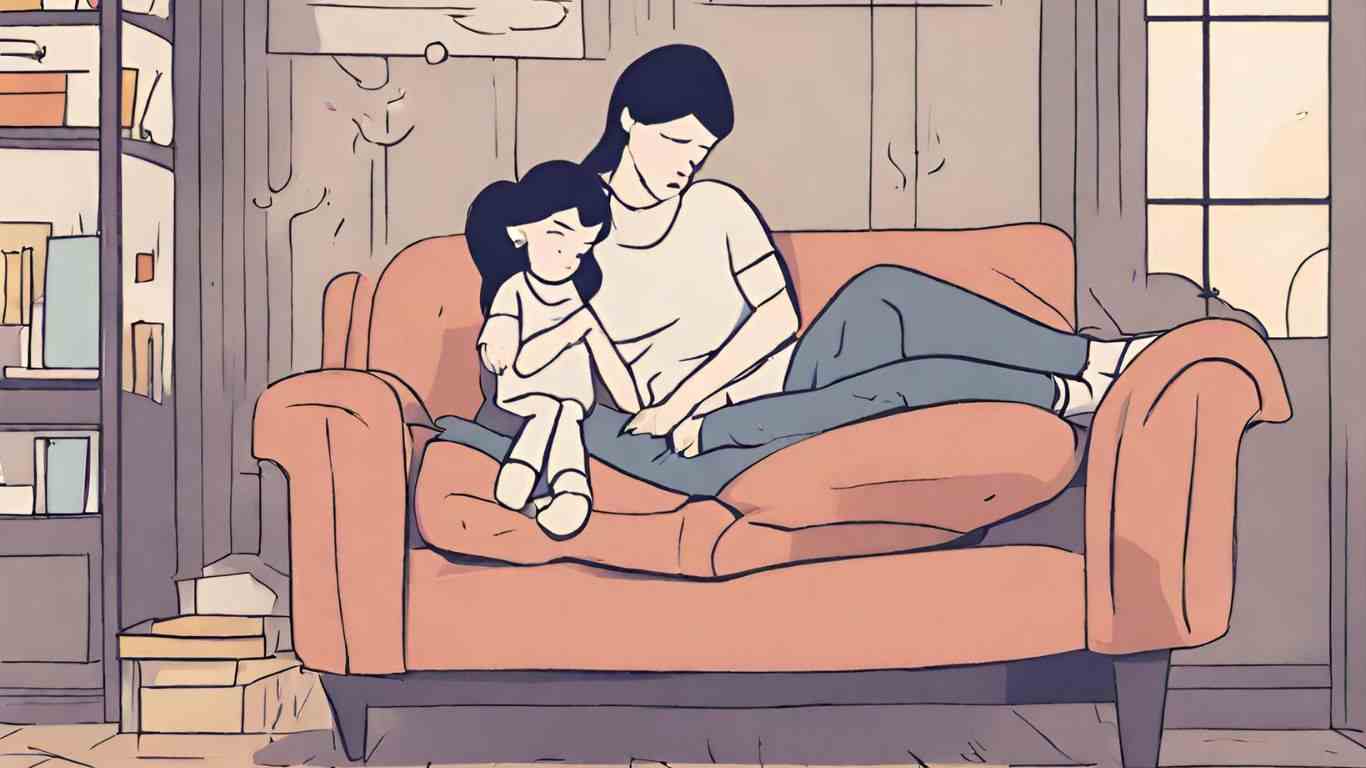Autism is a neurological disorder that affects communication, social interaction, and behavior. Raising a child with autism can be a rewarding experience, but it can also be challenging and stressful. Parents of children with autism are at a higher risk of experiencing burnout, which is a state of emotional, physical, and mental exhaustion caused by prolonged stress.
Identifying the symptoms of parental burnout is the first step in addressing the issue. Symptoms of burnout include feeling overwhelmed, irritable, and emotionally drained, as well as experiencing physical symptoms such as headaches and insomnia. The causes of burnout can vary, but they often include a lack of support, feeling isolated, and the demands of caring for a child with autism.
Key Takeaways
- Parents of children with autism are at a higher risk of experiencing burnout.
- Symptoms of burnout include feeling overwhelmed, irritable, and emotionally drained.
- Coping strategies and preventing burnout are crucial for parents of children with autism.
What is Autism
Autism, or Autism Spectrum Disorder (ASD), is a neurodevelopmental disorder that affects communication, social interaction, and behavior. It is a complex condition that varies in severity and symptoms from person to person.
ASD is typically diagnosed in early childhood, although some individuals may not receive a diagnosis until later in life. The exact cause of autism is unknown, but research suggests that it may be a combination of genetic and environmental factors.
Individuals with autism may have difficulty with social interactions, communication, and repetitive behaviors. Some common symptoms of autism include:
- Difficulty with nonverbal communication, such as making eye contact or understanding facial expressions
- Delayed speech or language development
- Repetitive behaviors or routines, such as hand-flapping or lining up toys
- Difficulty with social interactions, such as making friends or understanding social cues
- Sensory processing issues, such as being sensitive to certain sounds or textures
It is important to note that autism is not a disease or a mental illness. Rather, it is a neurological difference that can present both challenges and strengths for individuals with ASD. With appropriate support and accommodations, individuals with autism can lead fulfilling and meaningful lives.
Read also: Autism Burnout: Symptoms, Causes & Understanding
Identifying Parental Burnout
Parental burnout is a state of chronic exhaustion that results from the accumulation of stressors associated with the demands of parenting. It is a phenomenon that can affect any parent, but it is particularly common among parents of children with autism. In this section, we will discuss how to identify parental burnout.
Recognizing Symptoms
The symptoms of parental burnout can vary from person to person, but some common signs include:
- Chronic fatigue and exhaustion
- Difficulty sleeping or staying asleep
- Feeling overwhelmed or irritable
- Loss of interest in activities that were once enjoyable
- Difficulty concentrating or making decisions
- Physical symptoms, such as headaches or stomachaches
- Increased use of alcohol or other substances
If you are experiencing any of these symptoms, it is important to seek help from a medical or mental health professional.
Determining Causes
Parental burnout can be caused by a variety of factors, including:
- Lack of support from family and friends
- Financial stress
- Difficulty accessing services for your child with autism
- Difficulty managing your child’s behavior
- Feeling isolated or misunderstood
- High levels of responsibility and caregiving demands
It is important to identify the specific causes of your burnout so that you can address them effectively. This may involve seeking support from others, finding ways to manage stress, or making changes to your daily routine.
In summary, parental burnout is a common phenomenon that can have a significant impact on the well-being of parents of children with autism. Recognizing the symptoms and determining the causes of burnout are important steps in addressing this issue. If you are experiencing symptoms of burnout, it is important to seek help from a medical or mental health professional.
Read also: Guide to Self-Care for Parents of Special Needs Children
Impact of Autistic Parent Burnout
Autistic parent burnout is a real and serious issue that can have a significant impact on the whole family. When parents of autistic children are burned out, they may struggle to meet the needs of their children and themselves. This can lead to a number of negative consequences, including:
Effects on Parent
Autistic parent burnout can have a significant impact on the parent’s well-being and mental health. The following are some symptoms that parents may experience:
- Feelings of exhaustion and fatigue
- Increased levels of stress and anxiety
- Difficulty sleeping or insomnia
- Decreased motivation and interest in activities
- Irritability and mood swings
- Physical symptoms such as headaches and stomachaches
These symptoms can have a negative impact on the parent’s ability to care for their child and manage their daily responsibilities. It can also lead to feelings of guilt and shame, as parents may feel like they are not doing enough for their children.
Effects on Family
Autistic parent burnout can also have an impact on the family as a whole. The following are some ways that family members may be affected:
- Increased conflict and tension within the family
- Decreased quality time and engagement with the child
- Changes in family dynamics and roles
- Increased stress and anxiety for other family members
It is important for family members to recognize the signs of burnout and work together to support the parent and the child. This may involve seeking outside help, such as therapy or respite care, to alleviate some of the stress and responsibilities placed on the parent.
Read also: How Does Autism Affect the Development of a Child?
Coping Strategies
When it comes to coping with autistic parent burnout, there are several strategies that can help. These include self-care techniques and seeking professional help.
Self-Care Techniques
Self-care is essential for anyone dealing with burnout, and autistic parents are no exception. Here are some self-care techniques that can help:
- Take breaks: It’s important to take breaks when you need them. This could mean taking a few minutes to yourself during the day, or taking a day off when you need it.
- Ask for help: Don’t be afraid to ask for help when you need it. This could mean asking a friend or family member to help with childcare or hiring a babysitter for a few hours.
- Practice mindfulness: Mindfulness can be a powerful tool for reducing stress and anxiety. Consider practicing mindfulness meditation, or simply taking a few deep breaths when you’re feeling overwhelmed.
- Exercise: Exercise is a great way to reduce stress and improve your overall health. Consider finding an activity you enjoy, such as yoga or hiking, and making it a regular part of your routine.
- Get enough sleep: Getting enough sleep is essential for physical and mental health. Make sure you’re getting the recommended seven to nine hours of sleep each night.
Professional Help
Sometimes self-care techniques aren’t enough, and it’s important to seek professional help. Here are some options to consider:
- Therapy: Therapy can be a great way to work through your feelings and develop coping strategies. Look for a therapist who has experience working with parents of children with autism.
- Support groups: Support groups can provide a sense of community and understanding. Look for a support group specifically for parents of children with autism.
- Medication: In some cases, medication may be necessary to manage symptoms of anxiety or depression. Talk to your doctor about whether medication could be a helpful option for you.
Remember, coping with autistic parent burnout is a process, and it’s important to be patient and kind to yourself as you navigate it.
Read also: Autism Therapy You Can Do with Your Child at Home
Preventing Burnout
Autistic parent burnout can be prevented by taking steps to manage stress and build resilience. Here are some effective strategies that can help:
1. Effective Communication
Communication is key when it comes to preventing burnout. Autistic parents should communicate their needs and limitations with their partners, family members, and friends. They should also communicate with their children and explain their condition in a way that is age-appropriate and easy to understand. This can help children develop empathy and understanding, and reduce stress for both parents and children.
2. Setting Boundaries
Setting boundaries is crucial for preventing burnout. Autistic parents should establish clear boundaries with their partners, family members, and friends, and communicate their expectations and limitations. They should also set boundaries with their children, and establish clear rules and routines that can help reduce stress and anxiety.
3. Building Support Networks
Building a support network is essential for preventing burnout. Autistic parents should seek out support groups, online communities, and other resources that can provide emotional support and practical advice. They should also reach out to family members and friends, and ask for help when needed. Building a strong support network can help reduce stress, increase resilience, and prevent burnout.
In summary, preventing burnout requires effective communication, setting boundaries, and building support networks. Autistic parents should take these steps to manage stress build resilience, and seek out resources and support when they need it. By taking proactive steps to prevent burnout, autistic parents can improve their mental health and well-being, and provide better care for their children.








